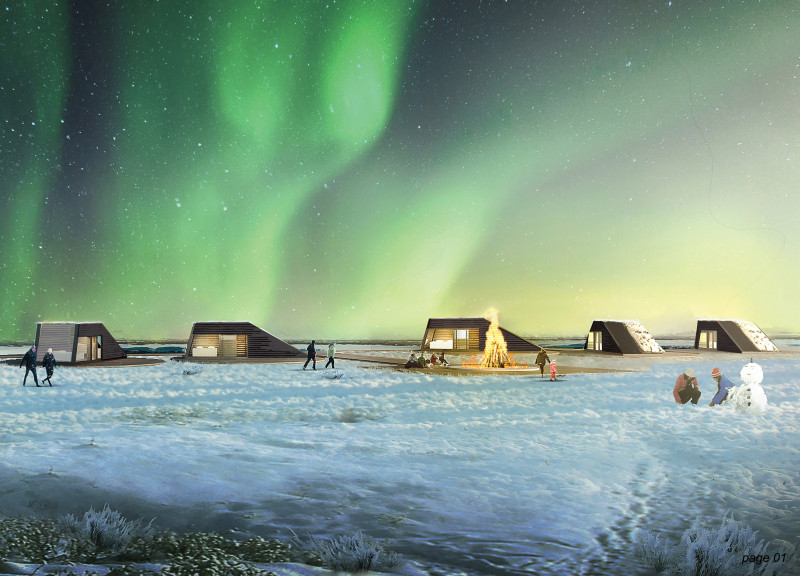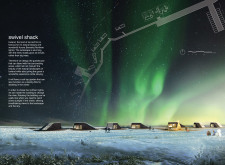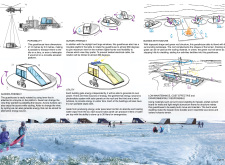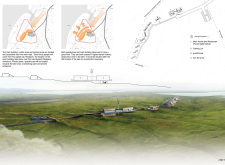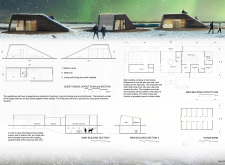5 key facts about this project
The project is a contemporary architectural design situated in an urban environment, characterized by its innovative approach to function and aesthetics. This design aims to integrate seamlessly with its surroundings while providing a modern space for its intended use, which could range from commercial to residential purposes. The architecture exemplifies a thoughtful response to the needs of its users and the specific context in which it is located.
The structure employs a variety of materials, including reinforced concrete, glass, and steel, each chosen for their durability and aesthetic properties. The use of large glass panels not only enhances the openness of the interiors but also facilitates a connection between the indoor and outdoor environments, promoting natural light and views. The concrete elements provide structural integrity, while also serving as a canvas for architectural expression through texture and form.
Unique Design Approaches
The project distinguishes itself through its innovative use of space and material integration. Unlike conventional designs, this project utilizes a modular approach, allowing for flexible internal layouts that can adapt to varying functional requirements over time. The incorporation of biophilic design principles is evident, with indoor green spaces strategically placed to improve air quality and enhance the occupants' overall experience.
Moreover, the architectural design embraces sustainability by incorporating passive design strategies. Features such as overhangs and shading devices are implemented to reduce energy consumption, while high-performance insulation materials contribute to the building’s energy efficiency. This commitment to eco-friendly practices not only addresses environmental concerns but also aligns with contemporary architectural expectations for sustainability.
Structural and Aesthetic Considerations
Examining the structural elements, the project boasts a cantilevered upper level, creating dynamic visual interest while optimizing the use of available land. This feature provides outdoor spaces, such as balconies or terraces, that extend living areas into the exterior environment, enhancing usability and lifestyle options for residents or users.
In terms of aesthetics, the design integrates regional architectural styles with modern interpretations, creating a harmonious yet distinctive silhouette in the urban landscape. The facade treatment employs a combination of textured surfaces and smooth finishes, offering tactile variety and depth while setting it apart from surrounding buildings.
In summary, the project represents a thoughtful convergence of functionality, sustainability, and aesthetics. Its unique design strategies and material choices serve to redefine contemporary architectural practice. For more detailed insights into the architectural plans, segments, and concepts that delineate this project, it is encouraged to explore the extensive project presentations available. Review the architectural designs and ideas to fully appreciate the richness and depth of what this project encompasses.


